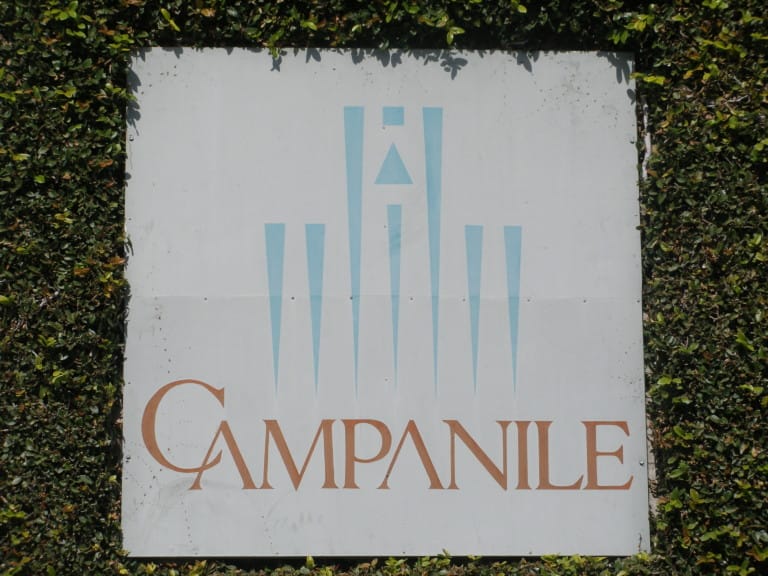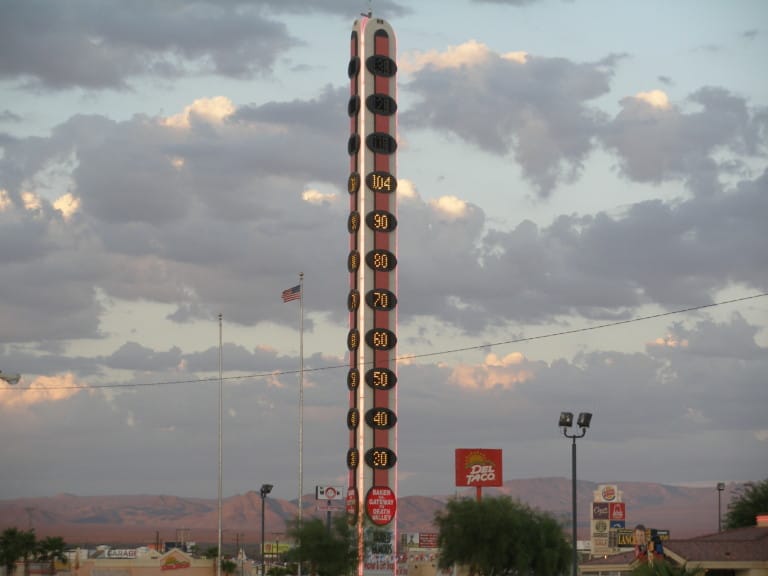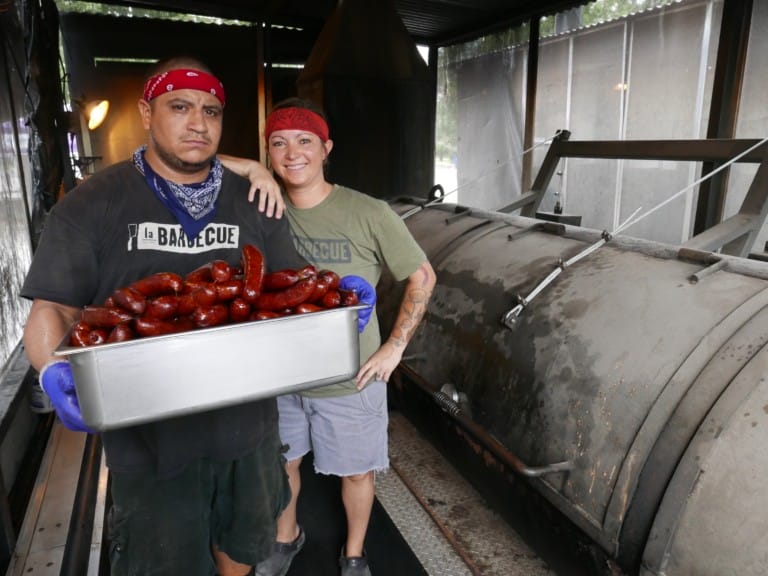STORY CONTINUED FROM PREVIOUS PAGE
The environment has never been under more duress. With that in mind, leading chefs and restaurateurs are taking sustainable steps to benefit their businesses, diners, and the greater community. I recently asked nine chefs who each run multiple concepts, “What steps have you taken to be eco-friendly at your restaurants?” Their answers might surprise you.
Mike Simms (The Arthur J, Craft Shack, Fishing With Dynamite, Manhattan Beach Post, Simmzy’s + Tin Roof Bistro)
Our restaurant company was founded in Manhattan Beach. Being local, the population here and the officials are eco minded. A lot of their policies have mirrored what we’ve attempted and they even have a person dedicated to helping businesses moving policies forward.
Polystyrene ban was for plastic bags. Being a surfer and being in the water, I’ve unfortunately trudged my way through a lot of trash. In the last 10 years, it’s drastically improved. We’ve done fundraisers for Heal the Bay, which has gone from beach cleanups to moving inland and improving the watersheds where the debris comes from.
We’ve also worked on a composting project with the city. We helped to pilot a commercial program for composting. We have yellow trash bags to put waste in.
Every time we do something environmentally minded, it’s embraced with wide open arms. When we first opened up Simmzy’s and M.B. Post, we worked with a local light manufacturer. He had just launched LED fixtures; now they’re everywhere, but they were not very common. We went through 20 different fixtures and lenses to make the light warm enough to work in our restaurants.
Now also commonplace is reclaimed materials in restaurants. Bar tops in Simmzy’s were concrete with recycled beer bottles. We use reclaimed woods throughout the restaurants.
We use a three-tier rating system for food. 1 means product is local and we have a relationship with them. Breadbar from El Segundo and Strand Brewing Co. could be a 1. 2 would be a non-local but relationship driven product. 3 would be neither. We try to get to 1.
When we opened Tin Roof, we looked at bottled water. Transportation and the amount of energy that it would take to get the bottle of water from the source, shipping it, and bringing glass to our restaurant, serving single use to a guest, then recycling it, was not an environmentally friendly practice. We decided to spend money on a filtration system that would give high quality municipal water at no cost to the guest. Now, with the exception of The Arthur J, we have no bottled water. We had a little pushback when we first opened M.B. Post and Tin Roof, but when the quality of product was presented, we had no issue. Most of my education about this came through Surfrider Foundation. At Tin Roof and other restaurants, we have filtered still and sparkling. We use recycled wine bottles, typically sauvignon blanc bottles, and sterilize them.
Same thing with wine. Taking cases of wine, opening bottles, and having to recycle bottles, it did not seem sustainable. We went to kegs of wine, either 15 gallon or 5.2 gallon kegs. At Long Beach, Huntington Beach, Venice, and Burbank, all of our wine is on draft.
We currently print menus on recycled paper. The process of producing the menus and shipping them out is not highly efficient, so the next menu rollout will be on plastic. No trees needed, product that’s already in the system will go to good use again.
We’re piloting 100% compostable to-go supplies at Craft Shack to be rolled out to other stores. As we move forward, the number of products is high quality – the guest needs to get a great product. Two years ago, we’d put hot soup in a to-go container and the bottom’s falling out of it, because it’s corn based – now we’re able to get quality products to go in the hands of our guests.
Joachim Splichal (Patina Restaurant Group)
I believe that eco-friendly practices start in the kitchen. We look for ways to minimize food waste at our restaurants. Additionally, we always look to use organic ingredients knowing that we can reduce the amount of chemical fertilizer and pesticides that are used in the soil. That means we work with local farmers and growers to create wholesome dishes.
We have focused on eco-friendly practices for numerous years at our Downtown Disney restaurants by reducing food waste and partnering with the Waste Not OC Coalition. We donate daily to this organization, in partnership with Food Finders, to deliver meals to families in need in the immediate area. We plan to expand this successful program into Los Angeles restaurants with a similar partnership with the LA County Food Recovery Initiative. Additionally, we have recently adjusted offerings at our offsite catering operations in Los Angeles to utilize recycled, biodegradable plates, cutlery, and other waste-reducing items.
Brooke Williamson + Nick Roberts (Da Kikokiko, Hudson House, Playa Provisions + The Tripel)
We recycle all of our oil, cardboard, cans and bottles. We installed an air compressor to spray dirty dishes and pans when they come back to the dish pit to minimize the amount of water we use to wash dishes. All of our disposable utensils and containers are biodegradable. We also source our produce as locally as possible.
Sang Yoon (Father’s Office, Lukshon + Two Birds One Stone)
I’m really proud to have helped popularize the idea of serving wine from kegs. This simple idea totally eliminates retail wine packaging that the restaurant consumer almost never sees anyway. No more bottles, corks, labels, boxes have to be recycled or thrown out. The bulk packaging also has a much smaller physical footprint so we can keep more wine on hand and have way fewer deliveries; thus having a residual effect of cutting down on traffic and pollution. All while giving us the ability to serve a better product for less money.









Blog Comments
Take My Shift Team
February 28, 2017 at 4:25 PM
It’s so encouraging to see things like this in the media. Restaurants being mindful of things like “how much are we using”, “can we use less”, and general food waste and recycling programs is amazing. Hopefully more and more places start to follow these examples.